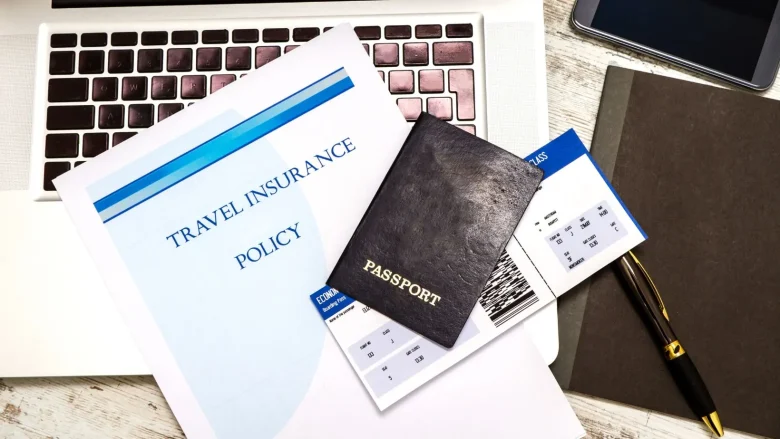Misunderstandings about DoD travel policies often result in unnecessary confusion and expenses, leading to unnecessary expenditure. Clearing up these misconceptions enables travelers and AOs to comply with regulations while simultaneously optimizing benefits.
Common misconceptions surrounding temporary duty (TDY) trips include registration fees being disallowed; in reality, these costs are covered under DoD guidelines.
Per Diem Rates Are the Same Across the Board
The Department of Defense imposes stringent rules regarding official travel. These regulations cover everything from per diem allowances tailored to locations and grades to accommodation flexibility and itinerary adjustments, reimbursement procedures and travel advances options – with many military personnel and civilians misunderstand DoD travel policies which results in incorrect expenses being submitted and thus breaking DoD rules.
DoD travel policy offers numerous advantages for those who understand its intricacies, including avoiding debt and optimizing expense efficiencies. By understanding DoD travel policy both travelers and approving officials can contribute towards keeping our country’s funds safe.
Myth: DoD travel policy prohibits or severely limits reimbursement of personal expenditures. In actuality, this is untrue – there may be certain allowances and reimbursements provided they directly relate to mission objectives. Be sure to document and justify these expenses using appropriate paperwork.
An ongoing misconception regarding TDY traveler registration fees is that these expenses do not fall under code 021, when in reality this information can be found within the JTR. Travelers and their administrative officers (AOs) need to understand this in order to manage them appropriately using fund citations correctly.
You Can Change Your Travel Orders After the Trip
DoD travel policy offers many perks that benefit military members, civilian employees, and their families. However, its own rules and restrictions ensure everyone is treated fairly while adhering to set protocols.
DoD travelers must follow certain rules when seeking advances for their trips. First, they need to obtain a funding note from their group’s finance office as required by DoD Financial Management Regulation guidelines when another organization pays for your travel costs. Failure to follow these steps may result in debt accumulation or misuse of government money – something DoD travelers cannot risk doing!
Travelers must file expenses and reimbursement claims within 10 days of returning from their trip; otherwise they risk forfeiting their advance or incurring fines. As a supervisor, ensuring your team members adhere to this guideline can save both time and money for your organization.
DoD travelers and supervisors alike must become adept at using the DTS system efficiently in order to quickly create and manage travel authorizations and vouchers, thus streamlining the process and keeping expenses in check and adhering to all rules pertaining to official DoD travel.
You Can Get Advances and Reimbursements
Many individuals misunderstand DoD travel policy, leading them to make mistakes such as misusing government funds incorrectly or breaching DoD rules. That’s why it’s crucial for both travelers and approving officials to receive accurate information regarding this topic.
Travel advances and reimbursements can often be misunderstood. Many individuals believe that in order to obtain an advance they must speak with their AO or submit claims immediately following a trip’s conclusion; this simply isn’t the case: travelers can access advances through ATM withdrawal or online transfer and submit claims as long as it falls within 10-30 days after returning home (depending on trip length).
Accurate information about these issues is crucial both for DoD travelers and those responsible for authorizing their travel. Accurate knowledge will ensure that travelers don’t go into debt while officials take the proper steps to cover all expenses.
Similar to JTR guidelines and departmental policies, an AO should not attempt to approve payments that violate DoD travel regulations or departmental guidelines. Instead, he or she should know and understand all applicable rules so that those entitled are paid.
You Can Only Stay in Government-Provided Accommodations
The Department of Defense travel policy offers clear rules governing official trips taken by military and civilian personnel, their families, and dependents. It covers various aspects, such as per diem allowances corresponding to travel grades; lodging options available through reimbursement rules; itinerary adjustments; and per diem allowances that match locales or travel grades; any potential complications regarding itinerary adjustments when filing travel claims may also be covered by this policy. Misunderstandings often cause issues when filing travel claims.
One of the most frequently misunderstood aspects of DoD travel perks is eligibility criteria. Some may think travel benefits apply solely to military personnel; in reality, they apply to a wide range of individuals. Furthermore, individuals often misunderstand guidelines regarding lodging options, per diem rates, reimbursement procedures and reimbursement processes.
DoD travelers must understand how the Joint Travel Regulations function and who Authorizing Officials (AOs) are so they can navigate its complexities with confidence. By having a firm grasp on its intricacies, travelers will be empowered to maximize their entitlements while staying within DoD guidelines while adhering to all its stringent rules; otherwise costly errors might arise that result in unexpected expenses or violate DoD regulations – this tool was developed precisely to identify and fix errors, guaranteeing public funds are used appropriately.




